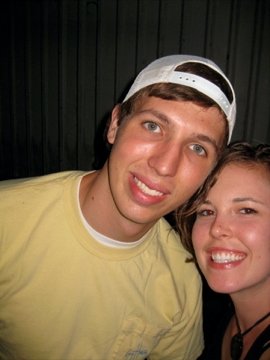User:Long Alexander: Difference between revisions
mNo edit summary |
No edit summary |
||
| Line 1: | Line 1: | ||
[[Image:alexjulia.jpg|right|300px|thumbnail]] | [[Image:alexjulia.jpg|right|300px|thumbnail]] | ||
I am a senior undergraduate in the Florida State Physics department. My main interests are in nuclear astrophysics, specifically energy production and transportation in certain stellar stages. | I am a senior undergraduate in the Florida State Physics department. My main interests are in nuclear astrophysics, specifically energy production and transportation in certain stellar stages. | ||
==Research== | |||
I have worked at the John D. Fox Accelerator Lab for the past year and a half. My main focus has been on the calibration of the new neutron detector for the nuclear department. This past fall we were able to run an experiment with the use of the neutron detector. | |||
Also for the past 6 months, I have been conducting research at the National High Magnetic Field Lab under the supervision of Dr. Christopher Wiebe. I have been making ferromagnetic Gd2(MoO4)3, Gadolinium Molybdate, crystals for an experiment at Yale measuring the electron Electric Dipole Moment to test theories beyond the Standard Model. | |||
Revision as of 14:16, 22 January 2009
I am a senior undergraduate in the Florida State Physics department. My main interests are in nuclear astrophysics, specifically energy production and transportation in certain stellar stages.
Research
I have worked at the John D. Fox Accelerator Lab for the past year and a half. My main focus has been on the calibration of the new neutron detector for the nuclear department. This past fall we were able to run an experiment with the use of the neutron detector.
Also for the past 6 months, I have been conducting research at the National High Magnetic Field Lab under the supervision of Dr. Christopher Wiebe. I have been making ferromagnetic Gd2(MoO4)3, Gadolinium Molybdate, crystals for an experiment at Yale measuring the electron Electric Dipole Moment to test theories beyond the Standard Model.
